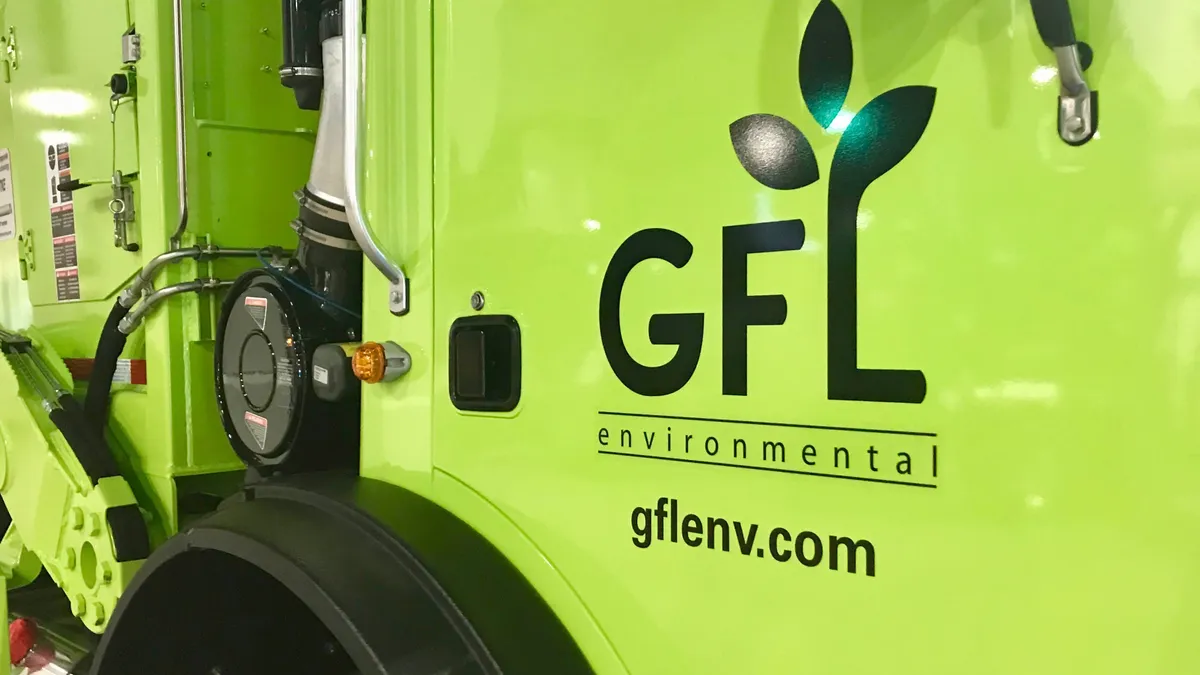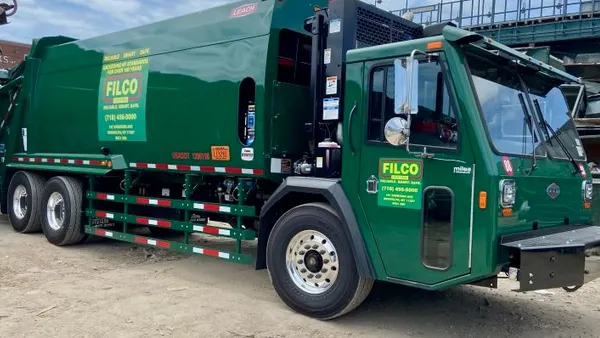All financial information in Canadian dollars. Results exclude recently divested infrastructure division.
- M&A: GFL Environmental's acquisition streak has continued this year, as it spent $72.1 million on nine small deals during the quarter. Another 12 acquisitions — including Texas-based Sprint, which CEO Patrick Dovigi said has had "industry-leading margins for over 15 years" — closed in the current quarter. The majority were small tuck-ins in the U.S. and Canada, many with an enterprise value of $10 million or less. Looking ahead, Dovigi predicted 2022 will be "another year of continued, outsized M&A opportunities."
- Portfolio shifts: GFL also reported $91 million in proceeds from divesting certain post-collection assets. Chief Financial Officer Luke Pelosi said further divestitures could be expected by the end of this year or early 2023.
- Pricing: As these acquisitions are integrated into the company in the coming months, executives see potential to build in further price increases and also update their approach to surcharges for fuel and other categories across the company's entire book of business. Pelosi estimated GFL may only be recovering an average of $0.45 on the dollar for solid waste fuel costs, unlike some other competitors. "I think there’s a real opportunity, as we move forward, to not reinvent the wheel but simply just to get to the place where a lot of our peers already are," he said during a Thursday earnings call.
- Volumes: GFL reported a 3.1% increase in volumes when excluding non-recurring MRF tonnage. This is an especially positive trend, Dovigi suggested, given effects from heavy winter weather and the omicron surge. Volume upticks have been particularly notable in Canada as many pandemic restrictions recently concluded. While Dovigi said major urban markets are "still way off pre-pandemic levels," and the timing of a return in office attendance is hard to predict, secondary Canadian markets are improving at a faster rate.
- Infrastructure: GFL also recently completed the spinoff of its infrastructure division into a new entity called Green Infrastructure Partners. This led to $224 million in cash proceeds and a 45% equity stake in a new business that is expected to grow quickly through Canadian acquisitions and likely go public in the future.
- Environmental services: GFL's remaining non-solid waste business now comprises liquid waste and soil remediation. This segment reported revenue of $231.7 million and organic growth of 19%, which Pelosi described as "phenomenal" and far ahead of expectations.
- RNG: GFL now anticipates it may expedite certain capital expenditures for its first round of renewable natural gas projects at landfills, as joint venture partners are ready to move more quickly. Initial projects could begin operations by next April. Given how market dynamics have evolved within the last year, executives are increasingly confident they can exceed original expectations of at least $115 million in free cash flow contributions from this segment.
- Labor: When asked about hiring and retention, GFL was optimistic this year may be easier than 2021. "We’re going into the busiest season with a much better turnover rate and a complement of drivers that positions us far better for success than what we experienced in the second half of last year," said Pelosi.
- Guidance: Based on the contribution from acquisitions, GFL has raised its annual revenue guidance to a high end of $6.1 billion, versus a prior projection of $5.925 billion.











